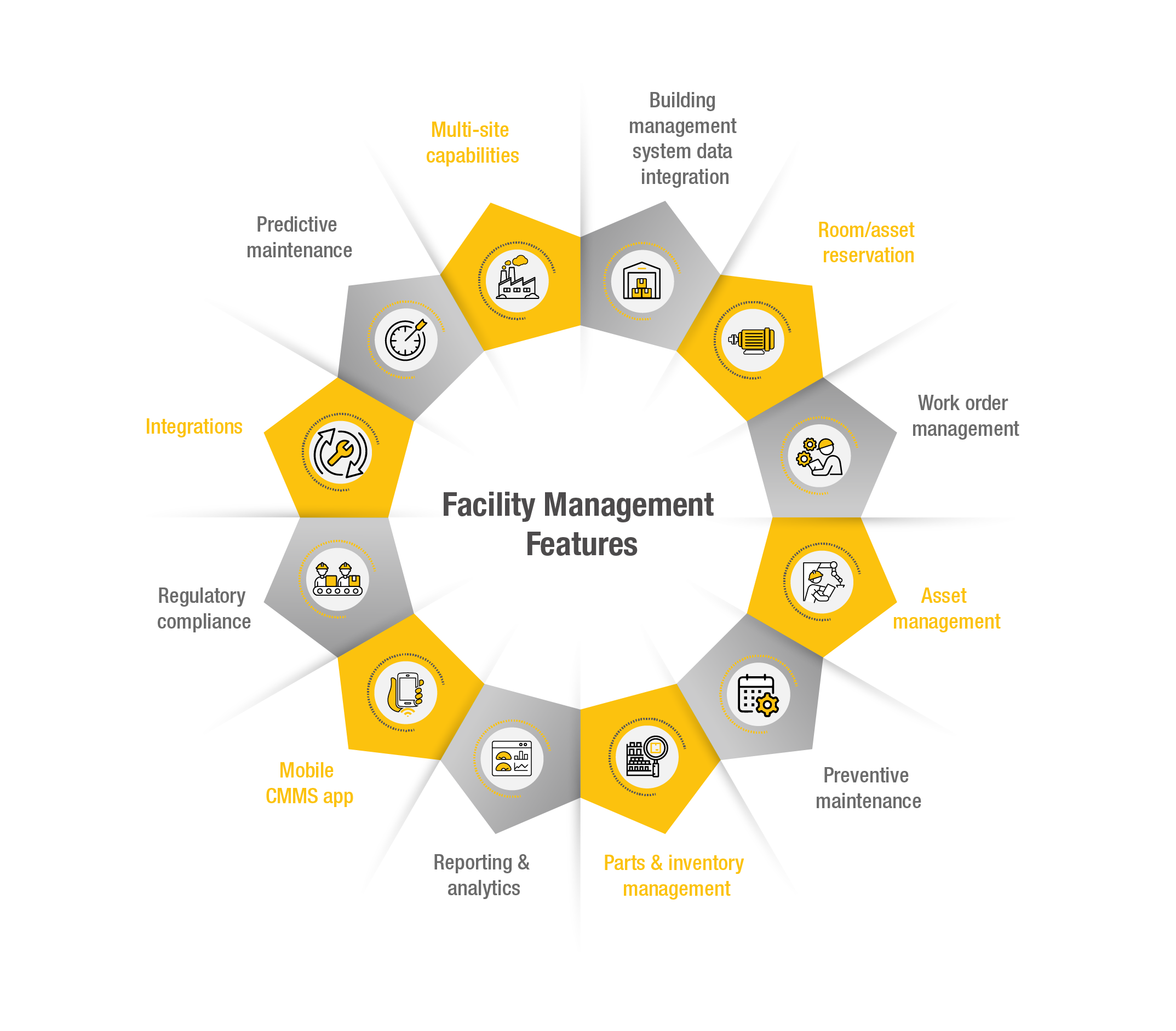Key Patterns Forming the Future of Center Management in 2024
As we look ahead to 2024, the landscape of facility monitoring is positioned for substantial makeover, driven by a number of crucial fads. The combination of clever structure innovations and a shift in the direction of data-driven decision-making guarantee to improve functional efficiency while focusing on sustainability in method.
Smart Structure Technologies

Smart structure modern technologies encompass a wide array of systems, consisting of smart illumination, cooling and heating controls, and safety and security systems. By integrating these systems, center managers can monitor and change criteria in real-time, leading to substantial decreases in energy waste and operational costs. For example, smart sensors can discover occupancy levels and adjust lights and temperature level accordingly, guaranteeing that energy is only used when required.
Additionally, these modern technologies promote improved data collection, enabling companies to track use patterns and identify chances for further enhancements. The application of clever structure technologies not only contributes to sustainability objectives yet likewise develops healthier work settings that can enhance employee performance and fulfillment.
As we relocate into 2024, the adoption of smart structure technologies will likely accelerate, mirroring a wider shift towards more smart, receptive, and sustainable facility management techniques.
Data-Driven Choice Making
Increasingly, companies are leveraging data-driven choice making to improve facility management techniques. By using information analytics, facility supervisors can acquire actionable understandings that significantly enhance operational performance and source allotment. The assimilation of advanced modern technologies, such as IoT sensors and real-time monitoring systems, enables the collection of huge quantities of data on structure performance, tenancy rates, and energy intake.
This riches of information permits center managers to recognize trends, anticipate maintenance needs, and proactively address problems before they rise. Anticipating analytics can anticipate devices failures, decreasing downtime and repair prices. In addition, data visualization devices facilitate better communication among stakeholders, making sure that notified choices are made collaboratively.
In addition, data-driven methods enhance calculated preparation by enabling facility managers to analyze the efficiency of existing techniques and make educated choices pertaining to financial investments in innovation or facilities. As organizations progressively focus on operational quality, data-driven choice production is poised to come to be a foundation of effective center management techniques in 2024 and beyond. Ultimately, the capability to take advantage of data properly will equip organizations to develop extra efficient, productive, and resistant facilities.
Sustainability and Eco-friendly Practices
The focus on data-driven decision making naturally aligns with the expanding concentrate on sustainability and environment-friendly techniques within center management. As companies progressively focus on ecological obligation, center managers are leveraging analytics to enhance resource use, lower waste, and reduce carbon footprints. This tactical approach allows the assimilation of energy-efficient systems, such as LED lighting, smart HVAC controls, and renewable resource resources right into facility operations.
Furthermore, the execution of lasting practices prolongs beyond power consumption. Facility managers are adopting eco-friendly materials and promoting recycling campaigns to create a round economy within their facilities. This not just enhances the ecological profile of the organization however likewise promotes a society of sustainability amongst employees.
Conformity with important link ecological guidelines is one more important aspect driving the adoption of green techniques. By utilizing information analytics, center supervisors can monitor conformity metrics and recognize areas for improvement, guaranteeing adherence to regional and worldwide sustainability requirements.
Crossbreed Job Versions
A considerable change in the direction of crossbreed work models is reshaping the landscape of facility management in 2024. This paradigm combines remote and in-office job, necessitating a reevaluation of area application, source allotment, and worker involvement strategies. Organizations are increasingly recognizing the relevance of flexible workspaces that deal with varied needs and preferences.
Facility managers should adjust by carrying out functional office styles that support collective initiatives while supplying areas for concentrated work. This consists of the integration of innovation to assist in seamless interaction and collaboration amongst in-office and remote workers. Smart building services, geared up with sensors and analytics, enable real-time tracking of space usage, enabling organizations to enhance their atmospheres effectively.
In addition, hybrid job versions emphasize the requirement for reliable facility administration that focuses on staff member experience. This includes not only innovation and room layout however likewise the growth of plans that advertise a well balanced work-life dynamic. As companies browse this change, the duty of facility management comes to be critical in producing an agile office that fosters performance and drives organizational success. Essentially, the hybrid job design is revolutionizing facility management, motivating a positive technique to meet the advancing needs of the workforce.
Improved Passenger Health
As companies embrace hybrid job models, a heightened emphasis on passenger wellness is ending up being integral to center administration strategies. Facility Management. This change identifies that a satisfied and healthy and balanced labor force straight influences productivity and retention prices. Facility managers are now focusing on environments that promote physical and psychological well-being, integrating aspects such as natural lighting, biophilic style, and obtainable wellness resources
Modern technology plays a critical role in this advancement. Smart building systems can keep track of environmental factors and adjust settings in real-time, ensuring optimal comfort levels - Facility Management. Comments mechanisms, such as occupancy sensors and employee surveys, permit center managers to continually refine wellness campaigns based on passenger requirements.

Final Thought
In 2024, the future of center administration will be dramatically influenced by the integration of smart structure technologies and data-driven decision-making, promoting enhanced operational efficiency. These trends jointly highlight the developing landscape of facility administration in feedback to modern obstacles and possibilities.
Center managers are advertising and embracing environmentally friendly materials recycling campaigns to produce a round economy within their facilities.A significant shift in the direction of hybrid work versions is reshaping the landscape of facility monitoring in 2024.Additionally, hybrid job models stress the requirement for efficient facility administration that prioritizes employee experience.As companies embrace hybrid job models, a heightened emphasis on occupant wellness is becoming essential to center management techniques.In 2024, the future of center monitoring will be substantially influenced by the combination of wise building innovations and data-driven decision-making, promoting boosted find out operational performance.